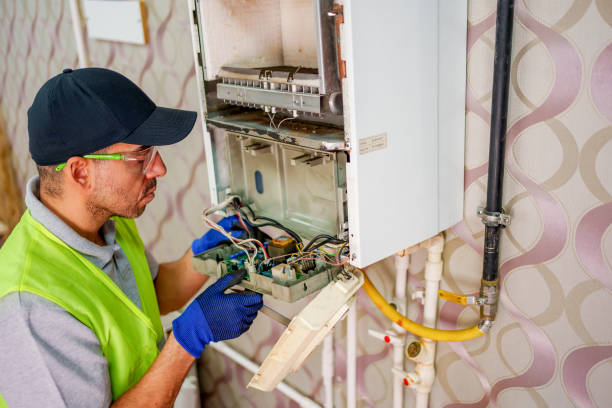Electrical systems affect how comfortable homes feel and how smoothly businesses run. Picking the right electrical installation service Cape Coral keeps people safe and ensures both places work without interruptions. Because residential and commercial projects vary in size, design, and rules, knowing how costs differ helps people plan confidently.
Homes usually need simple wiring for outlets, switches, and small appliances. Businesses, on the other hand, must power machines, heavy lighting, and special systems, which increases costs. By comparing these differences, anyone preparing for an installation can plan their budget wisely and avoid unexpected bills later.
Electrical Installation Service Cape Coral and Scale
The size of a project creates the biggest gap between home and business work. A typical house only needs wiring for outlets, switches, and fixtures. Commercial buildings often require larger systems to power equipment and strong lighting. Electricians plan for these differences because more wiring, more panels, and bigger setups naturally raise costs in business projects.
Home projects usually finish in a few days with one or two workers. Business jobs may take weeks or months, depending on the structure. Offices, warehouses, and shops often need larger maps, more circuits, and backup systems. The wider the scale, the more planning is needed. This is why proper budgeting becomes more important.
Safety Rules and Their Role
Safety codes guide how electricians install systems. A house follows basic codes that protect families. Businesses must meet stricter rules since they power emergency exits, heavy machinery, and bigger energy loads. The electrician Cape Coral carefully follows these standards. The extra checks add cost and time but prevent risks and build long-term reliability.
Business spaces also face regular inspections, which means their systems must pass repeated checks. Emergency lighting, fire alarms, and backup systems often require added wiring. Every new feature increases safety but also raises the bill. Ultimately, paying more for strong safety rules protects property and people.
Materials Used
The materials also separate homes from businesses.
- Homes use standard wires, outlets, and switches.
- Businesses need stronger cables, larger panels, and advanced protection.
- Added features like surge protection or smart controls can raise the cost.
Comparison of Common Materials
| Installation Type | Common Materials | Added Needs for Business |
|---|---|---|
| Residential | Standard outlets, basic wires | Light dimmers, smart plugs |
| Commercial | Heavy-duty panels, large breakers | Surge protection, backup systems |
Stronger parts, supply, and lead times raise costs. For homeowners, this may mean paying extra for surge-protected outlets. For businesses, it often means thousands more for industrial breakers.
Labor in Different Settings
Labor is just as important as materials. Homes need smaller crews and finish quickly. Business projects demand bigger teams and longer timelines. Electricians delivering electrical installation service Cape Coral often send multiple workers to manage wiring across floors, rooms, and machines. More people and more hours mean higher costs, but they also ensure stronger performance.
Scheduling also matters. Home jobs can be done during normal hours. Business jobs may require overnight or weekend work to avoid delays, which raises overtime costs. Working with other trades, like builders or IT teams, also extends the timeline. Every added hour impacts the bill, but it ensures smooth operations.
Project Complexity
Design plays a large role in cost. Homes often follow simple layouts, but businesses require advanced planning. Multi-floor wiring, high-voltage machines, and large lighting systems add complexity. People searching for electrical panel installation near me always prefer to choose the experts who handle these designs by mapping circuits, checking safety codes, and testing carefully. These steps raise costs but ensure lasting performance.
Businesses also need backups—extra circuits, emergency lights, and multiple points for important equipment. While homes can handle short outages, businesses must keep running. Careful design avoids breakdowns and reduces expensive downtime. The upfront cost may feel high, but it prevents larger losses later.
Long-Term Value
Installation costs should not be seen only as short-term expenses. For homes, they cover comfort and daily use. For businesses, they affect safety, efficiency, and uptime. Electricians providing electrical installation service Cape Coral design systems that cut risks, reduce failures, and lower repair costs. This long-term view makes higher upfront costs worth it.
Energy savings also matter. Well-installed systems lower utility bills. For businesses, even small cuts add up to thousands over time. For homes, lower bills mean steady savings and longer appliance life. Both gain from fewer repairs and emergencies, making the system an investment.
Technology and Modern Needs
Modern technology raises demand for advanced systems. Homes may add smart plugs or EV charging points. Businesses often install generators, controls, and monitoring systems. An electrician Cape Coral integrate these to improve efficiency. While costs rise, so do daily performance and energy savings.
For homes, upgrades may include app-based lighting. For businesses, smart HVAC systems and motion-sensor lights are common. Though costly upfront, they reduce energy waste and improve comfort. Staying updated with new systems supports both home and business needs.
Planning for Growth
Planning avoids expensive changes later. A home expansion may need more circuits, while a business may need bigger panels. Choosing providers who prepare for growth saves money and prevents disruptions.
Growth means more machines, lights, or office space for businesses, which demand scalable systems. Homes may need extra wiring for future use. Building flexibility into the design is always cheaper than replacing everything later.
Conclusion
Knowing how costs differ between homes and businesses helps people make better choices. Residential projects focus on comfort and cost, while commercial jobs require strength, safety, and room to grow. Providers build systems that balance today’s needs with tomorrow’s changes. By comparing both, people can plan budgets wisely and avoid surprises. For those seeking reliable support, Hatch Electrical Services, LLC ensures every project receives full attention.
Electrical installations are about more than wires—they ensure daily life and business run smoothly. With proper planning, the right team, and clear cost knowledge, every installation becomes an investment with lasting value.



